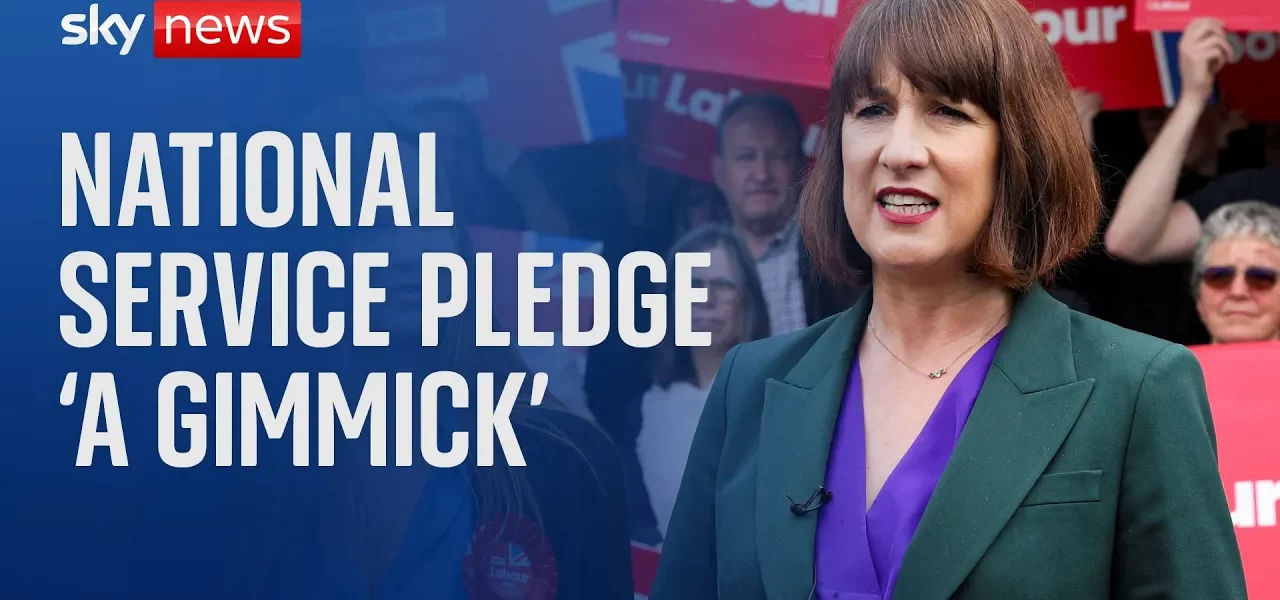Rishi Sunak’s Proposal for Mandatory National Service: An In-Depth Analysis

This article explores Rishi Sunak’s controversial proposal for mandatory national service for 18-year-olds, examining its potential electoral benefits, challenges with younger demographics, and the broader implications on British politics.
Introduction
The political landscape in the UK has been notably influenced by recent proposals aimed at engaging specific voter demographics. One such initiative is Prime Minister Rishi Sunak’s suggestion of mandatory national service for all 18-year-olds. This move seems to be a strategic attempt to connect with older voters and those with more right-wing views, akin to tactics previously employed during Boris Johnson’s campaign in 2019. As we delve deeper into this proposal, we will analyze its potential implications on the electorate, particularly among younger voters, and its significance within the broader context of British politics.
The Rationale Behind Mandatory National Service
Sunak’s proposal is not merely about military service; it encapsulates a broader vision of fostering patriotism and communal responsibility among the youth. By mandating national service, the government aims to instill a sense of duty and connection to the nation, potentially countering the growing divide among younger voters.
Political Strategy
Historically, appealing to older voters has yielded electoral dividends, particularly in conservative circles. The targeting of older demographics has been effective in various campaigns, including:
- Brexit campaign strategies focused on national sovereignty.
- Boris Johnson’s messaging during the 2019 general elections.
- Recent electoral trends showing a shift towards right-wing parties.
By adopting similar rhetoric, Sunak hopes to shore up support from traditional Tory voters while also attracting younger individuals to the cause of national service.
Comparative Analysis with Other Countries
Countries like those in the Baltic and Scandinavian regions have implemented national service programs with varying degrees of success. Sunak’s reference to these examples suggests a belief that the UK could replicate their positive outcomes:
- High levels of acceptance and participation.
- Increased sense of community and national identity.
- Enhanced civic engagement among youth.
Challenges and Criticism of the Proposal
Despite the potential benefits, Sunak’s proposal faces significant skepticism, particularly among younger voters who may view it as an infringement on their freedoms.
Concerns from the Youth Demographic
Younger voters have voiced concerns about the implications of mandatory national service, viewing it as an outdated concept that does not align with modern values. Key points of contention include:
- Perceived imposition of military service on young individuals.
- Concerns about the lack of clear funding mechanisms for such a program.
- The potential for coercive tactics to enforce participation.
Political Backlash
The proposal has also drawn criticism from opposition parties, with claims that it serves as an “expensive gimmick.” Critics argue that:
- The Conservative government lacks clarity on funding sources, suggesting a diversion of resources from essential community services.
- Such proposals may alienate moderate voters who do not align with right-wing ideologies.
- There is a risk of exacerbating divisions within society, particularly regarding cultural and ethnic tensions.
The Broader Political Landscape
The proposal for national service is set against a backdrop of significant political strife within the Conservative Party and the broader landscape of UK politics. The emergence of more right-wing parties, such as Reform UK, poses a threat to traditional Tory support.
Right-Wing Fragmentation
The presence of parties like Reform UK could potentially split the conservative vote, compelling the Tory party to solidify its base. The strategy seems clear: appeal to right-wing voters while also attempting to woo younger citizens. However, this balancing act may be precarious.
Impact on Communities
As debates intensify, there are concerns about the societal implications of such divisive politics, particularly regarding race and community relations. The rhetoric surrounding national identity and values has the potential to:
- Encourage divisive narratives that could embolden racism and xenophobia.
- Alienate minority communities, particularly Muslims, who may feel targeted by political discourse.
- Create real-life consequences that affect community cohesion and social harmony.
Conclusion
Rishi Sunak’s proposal for mandatory national service is emblematic of the current political climate in the UK, reflecting attempts to engage with specific voter demographics while navigating complex societal issues. While the initiative may resonate with traditional Tory voters, it risks alienating younger generations and exacerbating divisions within society. As the political landscape evolves, it remains crucial for leaders to consider the broader implications of their proposals on community dynamics and social cohesion. For further insights into the political strategies impacting the UK, explore our related articles on electoral trends and youth engagement in politics.
“`




